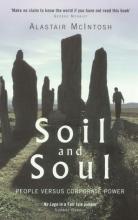
Disproportionate and unaccountable power, then, is not healthy. It merely bolsters an artificial sense of being somebody. It carries its price to pay. The more a man or woman builds themselves up in a community, the more others feel put down. The trouble is that the person in power rarely sees that in marshalling their assets and expecting honour, they’re only playing out their own inadequacies. In a world of real need, outward riches thereby betray inner poverty. The flashy car, boat or aeroplane amplifies the impression of power, of solidity, of reality. But the soul ossifies, and the environment pays, and a culture of envy, fear and dissatisfaction develops based on acquisitive addiction to the all-consuming thrill of speed or the chase or the boardroom takeover. In the lotus-eating economy that results for the few, the majority, with a deficit of outward power, slog daily in factories making toys for the rich, instead of building homesteads for the poor. Their labour is degraded by the unacceptability of lives rendered futile.
This is why economic power to which justice is not germane is always a form of violence and why such an economic system is, in theological language, idolatrous. ‘Whose head is this, and whose title?’ asked Jesus when the Pharisees enquired about paying imperial taxes. They had showed him a coin, a silver denarius. The head was the Emperor’s; his title, ‘TIBERIUS CAESAR, SON OF THE DIVINE AUGUSTUS, AUGUSTUS’. Before famously replying ‘Render unto Caesar what is Caesar’s’, Jesus sidestepped the small question and threw back the big one. He asked them, in effect, ‘In whose economy do you place your confidence? Is it that of Caesar, who sets himself up as an imperial god, or that of God, whose passion is for the widow, the orphan and the poor?’
And that’s the problem with both old-style imperialism and modern corporate globalisation: both serve money before love. The real ethical question of our times, then, is not which of biotechnology, organic agriculture, the motor car, heart transplants, fair trade or computers are, in themselves, ‘a good thing’. That is a meaningless question. The real question is, rather, how and why and who and what do these things serve? Do they free the spirit and feed the hungry? Do they honour the diversity of life on Earth? Or do they, somewhere or for somebody or something, mean enslavement?

Add new comment